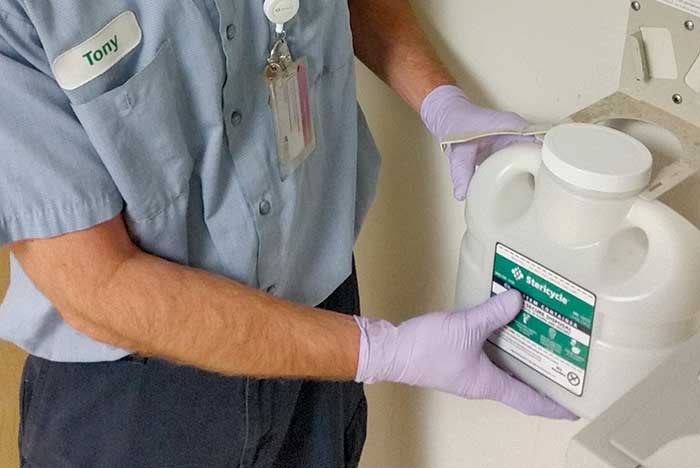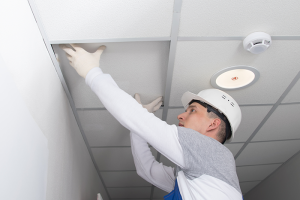Facilities take proactive approach to drug disposal

Allina Health and Indiana University Health North partnered with Stericycle to implement its CsRx System.
Hospitals and health networks face a confusing and sometimes contradictory array of federal, state and local regulatory requirements regarding the management and disposal of controlled substances. Diversion risks, however, are too high for health care providers to wait for various governmental agencies to provide more clarity and consensus on best practices.
“Even though the [Drug Enforcement Administration] and [Environmental Protection Agency] do not prohibit flushing and do not require us to have a formal process for controlled-substance waste occurring on the floors, we know these regulations will be coming,” says Janice Vadas, inpatient pharmacy manager, Indiana University Health North. “The diversion problem is everywhere, and we needed a better way to prevent incidents. Plus, we no longer wanted to flush this waste with a witness watching and, instead, [want to] keep it out of our water system.”
The Minnesota health system, Allina Health, also decided to proactively manage its controlled substances despite the fact that this was not mandatory at many of its sites.
Also in this article |
| Safely managing controlled substances |
|
|
“Diversion is at the forefront of our key risk areas and we wanted to standardize our preventive efforts across our system,” says JoAnne Myhre, drug diversion program manager, pharmacy compliance services, at Allina Health. “It is challenging and time-consuming to continually educate nurses on witness wasting, which is ineffective against collusion.”
Pharmacists should consider services designed to change human behavior, prevent diversion and ensure regulatory compliance. When evaluating options, they may ask whether controlled-substance waste is deactivated and/or deters ingestion? Does a solidifier make it impossible to remove substances from a container? Does the container have a one-way disposal and a closed top? Are sharps, vials and ampules prevented from entering the container?
Both Allina Health and Indiana University Health North decided to partner with Stericycle to implement its CsRx System. Myhre indicated that, so far, the pilot site has been successful in implementing the system within several areas of the hospital. She and Vadas both appreciate the value of having transparent collection boxes that make controlled substances non-retrievable and make it easy to monitor replacement requirements.
“It helps us provide an alternative method of collecting waste that also benefits how we manage the complexities of controlled substance waste in our organization,” says Myhre.
“Our ability to manage the disposal of controlled substances affects the safety of patients, visitors, employees and anyone who walks through our doors,” says Vadas. “The CsRx System eliminated unnecessary steps in the disposal of controlled substances and enabled us to standardize more efficient and effective practices across our hospital.”


